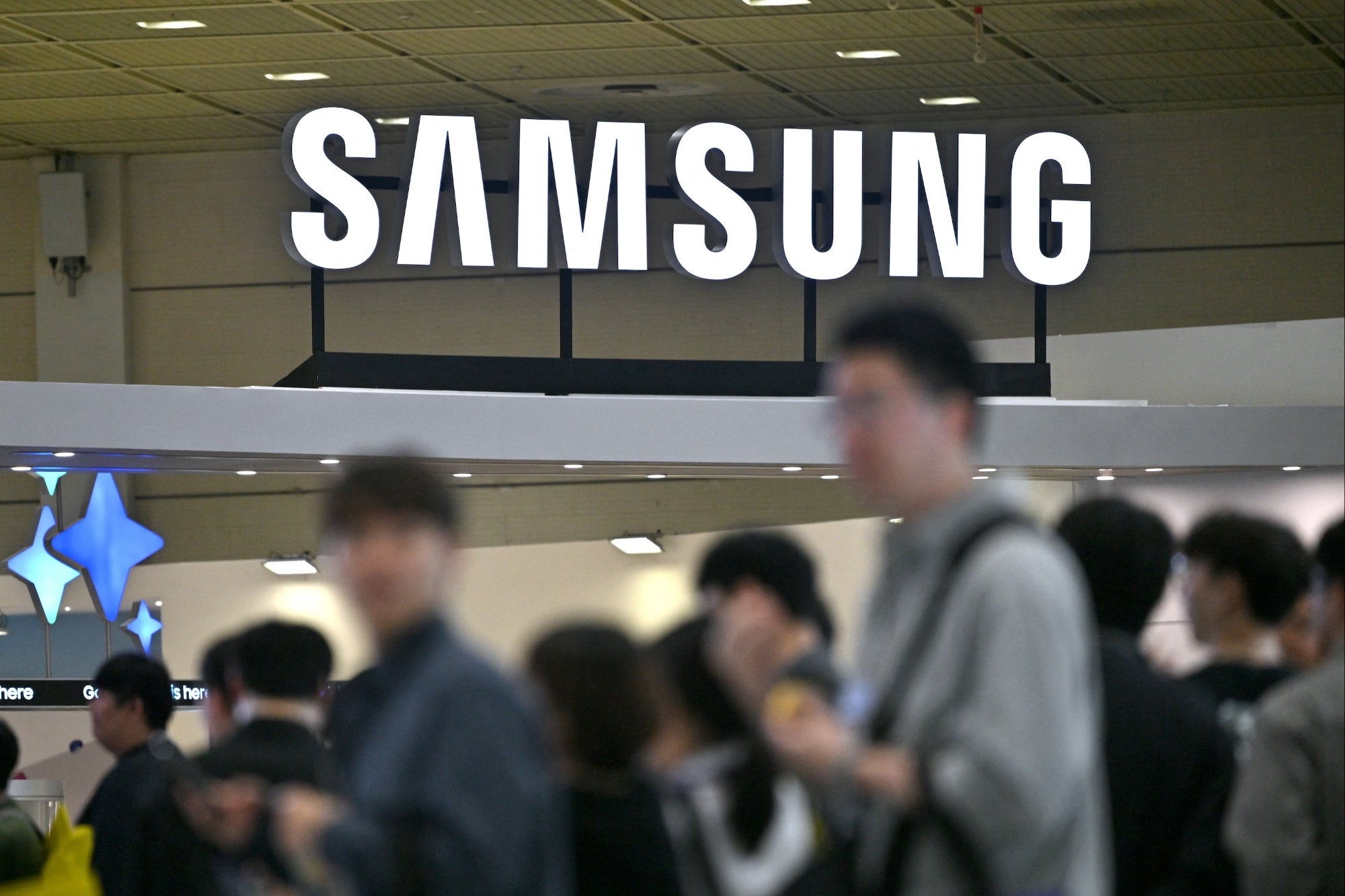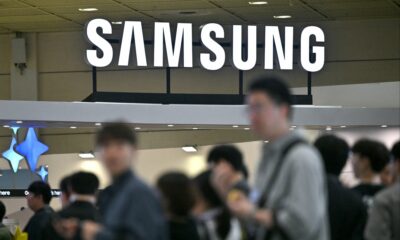AFFILIATE MARKETING
Customer Experience Will Determine the Success of Your Company

Opinions expressed by Entrepreneur contributors are their own.
It’s no secret that successful companies are the ones with satisfied customers. But while many executives claim to understand the importance of customer experience (CX), it often falls by the wayside as resources are channeled into product development. Yet as we wrestle with a global recession, how you interact with your customers is more vital than ever before. Customer experience is, in fact, the single ingredient that will determine the success of your company.
According to Adobe’s 2020 Digital Trends report, the majority of companies stated that their key focus this year was on customer experience. CX was ranked higher than content marketing, video marketing and even social media. It’s really no surprise, considering that focusing on customer experience can vastly increase a company’s bottom line.
Research by the Temkin Group found that companies with a turnover of $1 billion annually can expect to earn an additional $700 million within three years when they invest in CX. A further report by SmartInsights revealed that businesses offering better customer experience earned between 4 and 8 percent more than their competitors. And a survey by Deloitte found that 88 percent of companies now prioritize customer experience in their contact centers.
Related: How to Improve Your Bottom Line by Embracing Customer Experience
The Use of Technology in Customer Experience
Technology plays a key role in creating a memorable customer experience each time a client interacts with your brand. This can include simple tools such as the use of dedicated landing pages and customized emails, as well as more complex CX technologies such as intelligent live chat and AI-based algorithms that can help companies understand customer preferences.
Netflix, for example, uses AI to mine the data of its subscribers and provide highly personalized experiences to more than 180 million subscribers worldwide.
“We own the Netflix customer experience from the moment they sign up, for the whole time they are with us, across TV, phone and laptop,” stated Todd Yellin, Netflix’s VP of Product Innovation, in an interview with The Guardian.
The content-streaming platform invests in making customers happy by eliminating friction from the customer journey. In 2016, the company revealed that it used hundreds of A/B tests each year to see how subscribers responded to recommendations. Running these types of experiments allowed Netflix to master the content-delivery algorithm and improve customer retention.
Between 2016 and 2020, Netflix doubled its number of users worldwide. That was possible through attracting new subscribers, but also because the company was obsessed with providing excellent customer experience that encouraged continued subscriptions.
Brands that create a company culture focused on customers help their employees work together to achieve the same goal: making customers happy. Two decades ago, in an interview with CNBS, Jeff Bezos gave the recipe for creating a successful global company, saying, “If there’s one thing Amazon.com is about, it’s an obsessive attention to the customer experience, end-to-end.”
Amazon is known for delivering unmatched customer experience and making its clients happy. The number-one online retailer has been innovating in the industry for more than 20 years using advanced technology to create the ultimate shopping experience from highly tailored recommendations to effective delivery strategies.
Why Brands Should Optimize Their Touchpoints
Customer experience impacts the way they make buying decisions. In fact, even as far back as 2006, a study by McKinsey found that 70 percent of buying experiences are based on how the customer feels they are being treated. This means your company must focus on more than just providing a high-quality product, and consider the customer experience at every touchpoint with your brand.
You don’t necessarily have to invest in additional staff members of expensive algorithm software. CX technology is accessible to brands of all sizes and allows any company to gather and use data to better understand its users. Moreover, the need to focus on customer experience isn’t limited to online retailers or streaming services. All companies can benefit from optimizing their CX.
According to Adam Hasaik, for example, founder of Access Jet Group, one of the easiest ways to improve customer experience is to give clients options and comfort. “There’s nothing restrictive about what we offer to our clients,” he explains on the company’s website. “Therefore we secure their business repeatedly. We give traveling clients maximum convenience and comfort. They can hail a charter flight, choose the jet size, and select among add-ons such as sleeping quarters and cabin hosts.”
Access Jet puts the client in the driver’s seat, which increases customer satisfaction and reduces complaints. The results are increased loyalty and positive reviews. Better yet, satisfied customers become advocates of a brand, as they make recommendations and spread the word about a company’s quality services.
Customer Experience in Affiliate Marketing
Affiliate marketing is a good example of how excellent customer service can help secure business growth. Using affiliate marketing, a company can collaborate with third parties to reach the right audience in a personalized manner, all while providing an excellent customer experience.
An affiliate program allows companies to connect with warm leads that have already been engaged in conversations. That’s because the third-party service has already spent hundreds of hours learning about their audiences and their expectations.
Services like Affiliate Institute show how affiliate marketing broadens the field of who can play and allows more companies to access rich data about their targeted audience. Marketers can then use this information to optimize touchpoints and treat customers well at every interaction.
The principle is similar to that used by Netflix or Amazon, with the difference being that you don’t do the A/B testing yourself. Affiliate marketers test the audience to see what works and what needs to be improved. Then, they apply the right strategies to market your product and consolidate your relationships with prospects and customers.
Related: How to Earn Customers’ Trust
Customer experience is vital to business success, with more than two-thirds of companies competing primarily on this factor. When you nail your company’s CX, you can establish your brand as the go-to provider, even in a tough market with established competitors. It may seem like an additional cost at a time when many companies are trimming their budgets, but investing in customer experience is vital to your long-term success.
Source link
AFFILIATE MARKETING
AI Will Transform the Workplace. Here’s How HR Can Prepare for It.

Opinions expressed by Entrepreneur contributors are their own.
Our workplaces are about to undergo an unprecedented level of transformation, and HR will take center stage. Artificial intelligence will dramatically reshape HR in a way that goes beyond recruiting, hiring and talent management. Leadership teams at all levels need to embrace this change to transform and lead their organizations forward.
It’s the people, and not the technology, that makes AI initiatives a success. Intrapreneurs, in particular, are the driving force behind it. As I shared in Fearless Innovation, I noticed this when I was working on the innovation agenda for the Great Places to Work study — the most innovative companies were those that had a leadership team that was embracing intrapreneurship and were open to change.
HR is the beating heart of any organization, and as such, it needs to take center stage in both adopting and leading ethical and innovative AI transformation across the organization.
Related: How Artificial Intelligence Is Reinventing Human Resources
4 tectonic shifts AI will drive in HR
1. A new wave of massive reskilling
As AI becomes more prominent across business functions, the need for new skills will only grow. Forty percent of enterprise leaders believe that their workforce would need to reskill as a result of AI and machine learning. In fact, research shows almost a third of all hours worked in the U.S. could be automated by 2030.
All of us need to reskill to some extent to be relevant in the AI era. Not only would people need to re-train, but generative AI is introducing a whole host of professions that have been non-existent until recently, from AI ethicists to human-AI interaction designers. Some of these roles might sound futuristic, yet they are becoming increasingly relevant as technology advances.
2. The great restructure
As automation takes center stage across more business functions, there will be the inevitable need for organizations to restructure and rethink how they work. This transition will not only involve the integration of new technologies but also introduce a shift in the workforce dynamics. Intrapreneurs will need to identify gaps both in skills and operational processes and forge brand-new roles for themselves and those they manage. HR must play a key role in enabling a smooth and easy transition in this regard. The transition will not be smooth or easy, and it’s only HR that has the capability to make it impactful.
3. Arrival of “digital humans”
“Digital human” may sound like an oxymoron, but that’s the term that’s starting to appear in business and operational plans. More roles, regardless of industry, are becoming digitally enhanced where some form of AI assistance is embedded in their everyday work. A real-life example is the introduction of the digital nurse — AI-powered healthcare agents which have already been proven to outperform human nurses in certain tasks.
Imagine the impact these digital roles will have on the workforce the more sophisticated and prevalent they become. Eventually, HR will need to create policies and systems in place that account for this new type of “staff augmentation.”
4. Regulating the robot
The threat of AI bias and misuse is serious. Not only can the technology put many jobs at peril, but potential improper implementation can expose organizations to serious liability and negatively affect the workforce. From avoiding bias to inclusivity, HR teams play a critical role in the ethical deployment and management of AI technologies.
HR professionals will be tasked with navigating the delicate balance between leveraging AI for efficiency and ensuring that its application upholds fairness, privacy and non-discrimination.
What HR intrapreneurs must do to embrace AI the right way
The future of work is being shaped by AI adoption, and its success hinges on the right approach from the outset. My experience shows that for successful organizations, one universal trait stands out: the presence of change agents. Every organization, regardless of size, benefits from intrapreneurs who are open to change and committed to spearheading transformation efforts. These intrapreneurs are pivotal in driving the future of work, as they help orchestrate the integration of new technologies into their business models.
HR and talent leaders should harness this dynamic, encouraging a symbiotic relationship with intrapreneurs to develop customized solutions for AI adoption, ensuring that they are not just keeping pace with technological advances but are actively shaping their trajectory.
Securing a seat at the table:
HR should take a proactive stance in the adoption of AI, even if it is still in its early stages within your organization. By securing a position at the forefront of the AI initiative, HR can and should facilitate and guide the entire organization in embracing this significant change.
As AI has the potential to impact every facet of the organization, it is imperative for HR to not only understand and advocate for this technology but also lead its integration across all departments. HR should encourage and support intrapreneurs and all employees to leverage AI in their daily tasks, demonstrating its value not just for operational efficiency but for personal and professional growth as well.
Master the technology:
To effectively navigate and regulate AI, HR must first understand it thoroughly. Grasping the full potential of this technology is crucial for reaping its extensive benefits. HR plays a vital role in identifying the necessary tools and skills that employees must acquire and then integrating these learnings into daily work practices.
Before implementing AI more broadly, HR should initiate comprehensive training programs that not only educate but also reassure employees about AI’s role in the future of the business. By leading these educational initiatives, HR can shape the structure and effectiveness of these programs, ensuring they meet the needs of the organization and its workforce.
Related: 3 Ways to Prepare Your Business For an AI Future
Looking ahead
Generative AI has the transformative potential to redefine the business landscape, but realizing this vast potential hinges on more than just the adoption of technology. It critically depends on the talent within the workforce, driven by HR and bold intrapreneurs. These visionary leaders don’t just implement new tools; they exemplify their use, demonstrating the profound impact of AI across every level of the organization.
HR plays a pivotal role in fostering this environment, enabling intrapreneurs to guide and inspire every individual they touch. Together, they turn each employee into a catalyst for change, igniting a widespread passion for innovation that deeply resonates and sustains long-term success.
AFFILIATE MARKETING
Samsung: 6-Day Workweek For Execs, Company in Emergency Mode

Four-day workweeks might have all the buzz, but one major tech company is going in the opposite direction.
Samsung is implementing a six-day workweek for all executives after some of the firm’s core businesses delivered lower-than-expected financial results last year.
A Samsung Group executive told a Korean news outlet that “considering that performance of our major units, including Samsung Electronics Co., fell short of expectations in 2023, we are introducing the six-day work week for executives to inject a sense of crisis and make all-out efforts to overcome this crisis.”
Lower performance combined with other economic uncertainties like high borrowing costs have pushed the South Korean company to enter “emergency mode,” per The Korea Economic Daily.
Related: Apple Is No Longer the Top Phonemaker in the World as AI Pressure and Competition Intensifies
Executives at all Samsung Group divisions will be affected, including those in sales and manufacturing, according to the report.
Samsung had its worst financial year in over a decade in 2023, with the Wall Street Journal reporting that net profit fell 73% in Q4. It also lost its top spot on the global smartphone market to Apple in the same quarter, though it reclaimed it this year.
Though employees below the executive level aren’t yet mandated to clock in on weekends, some might follow the unwritten example of their bosses. After all, The Korea Economic Daily reports that executives across some Samsung divisions have been voluntarily working six days a week since January, before the company decided to implement the six-day workweek policy.
Entrepreneur has reached out to Samsung’s U.S. newsroom to ask if this news includes executives situated globally, including in the U.S., or if it only affects employees in Korea. Samsung did not immediately respond.
Research on the relationship between hours worked and output shows that working more does not necessarily increase productivity.
A Stanford project, for example, found that overwork leads to decreased total output. Average productivity decreases due to stress, sleep deprivation, and other factors “to the extent that the additional hours [worked] provide no benefit (and, in fact, are detrimental),” the study said.
Related: Samsung’s Newest Galaxy Gadget Aims ‘To See How Productive You Can Be’
Longer hours can also mean long-term health effects. The World Health Organization found that working more than 55 hours a week decreases life expectancy and increases the risk of stroke by 35%.
The same 55-hour workweek leads to a 17% higher risk of heart disease, per the same study.
AFFILIATE MARKETING
John Deere Hiring CTO ‘Chief Tractor Officer,’ TikTok Creator

This article originally appeared on Business Insider.
Agriculture equipment company John Deere is on the hunt for a different kind of CTO.
The brand on Tuesday announced a two-week search to find a “Chief Tractor Officer” who would create social media content to reach younger consumers.
One winning applicant will receive up to $192,300 to traverse the country over the next several months showcasing the way John Deere products are used by workers, from Yellowstone National Park to Chicago’s Wrigley Field and beyond.
“No matter what you do — whether it’s your coffee, getting dressed in the morning, driving to work, the building you go into — it’s all been touched by a construction worker, a farmer, or a lawn care maintenance group,” Jen Hartmann, John Deere’s global director of strategic public relations, told AdAge.
To kick off the search, John Deere tapped NFL quarterback Brock Purdy (who will presumably be a bit busy this Fall to take the job himself) to star in a clip in which he attempts to set out on a road trip in an industrial tractor.
Suited up in the obligatory vest, work boots, and John Deere hat, Purdy’s progress is interrupted by teammate Colton McKivitz hopping into the cab while a string of messages floods in from other athletes and influencers expressing interest in the job.
The clip also represents the first time that the 187-year-old company has used celebrities to promote itself, Hartmann told AdAge.
According to the contest rules, entrants have until April 29 at midnight to submit a single 60-second video making their pitch for why they should be the face and voice of the company.
In addition, entrants must live in the 48 contiguous states or DC — sorry Hawaii and Alaska residents. Interestingly, any AI-generated submissions are prohibited, too.
Videos will be judged against four categories — originally, creativity, quality, and brand knowledge — after which five finalists will be chosen and notified after May 17.
-

 SEARCHENGINES6 days ago
SEARCHENGINES6 days agoGoogle Core Update Volatility, Helpful Content Update Gone, Dangerous Google Search Results & Google Ads Confusion
-

 SEO6 days ago
SEO6 days ago10 Paid Search & PPC Planning Best Practices
-

 MARKETING5 days ago
MARKETING5 days ago5 Psychological Tactics to Write Better Emails
-

 MARKETING7 days ago
MARKETING7 days ago2 Ways to Take Back the Power in Your Business: Part 2
-

 SEO6 days ago
SEO6 days agoWordPress Releases A Performance Plugin For “Near-Instant Load Times”
-

 SEARCHENGINES5 days ago
SEARCHENGINES5 days agoWeekend Google Core Ranking Volatility
-

 PPC7 days ago
PPC7 days agoCritical Display Error in Brand Safety Metrics On Twitter/X Corrected
-

 MARKETING6 days ago
MARKETING6 days agoThe power of program management in martech














You must be logged in to post a comment Login